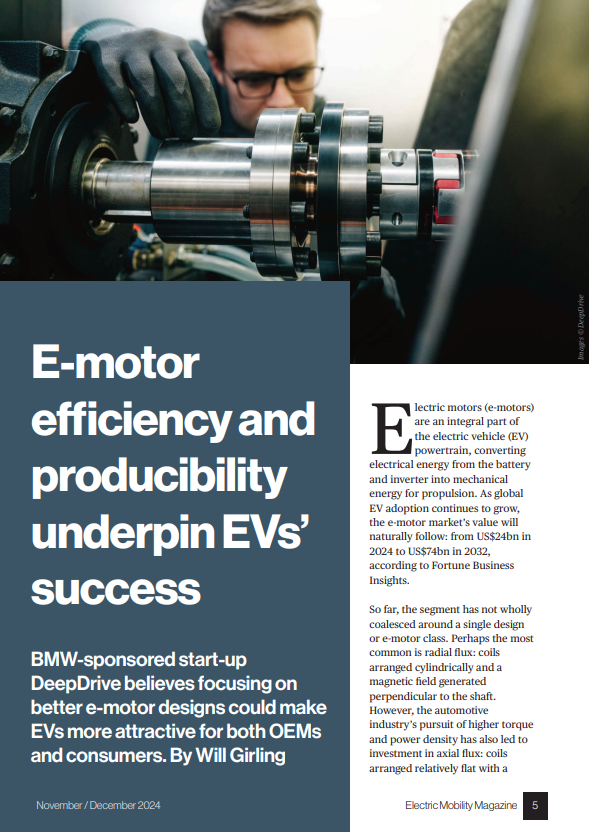Media
E-motor efficiency and producibility underpin EVs’ successAutomotive World
Autmotive World
2024/11/20
BMW-sponsored start-up DeepDrive believes focusing on better e-motor designs could make EVs more attractive for both OEMs and consumers.
Electric motors (e-motors)are an integral part of the electric vehicle (EV) powertrain, converting
electrical energy from the battery and inverter into mechanical energy for propulsion. As global
EV adoption continues to grow,the e-motor market’s value will naturally follow: from US$24bn in
2024 to US$74bn in 2032, according to Fortune Business Insights.
So far, the segment has not wholly coalesced around a single design or e-motor class. Perhaps the most
common is radial flux: coils arranged cylindrically and a magnetic field generated
perpendicular to the shaft. However, the automotive industry’s pursuit of higher torque and power density has also led to investment in axial flux: coils arranged relatively flat with a magnetic field parallel to the shaft. This design is less cumbersome and generally more efficient. In 2021, Mercedes-Benz acquired axial flux e-motor maker Yasa to explore its next-generation potential.
Meanwhile, other automakers like BMW continue to bet their money on radial flux, albeit with improved performance. Also in 2021, BMW scouted and partnered with Munich-based start-up DeepDrive to develop new technology capable of delivering greater EV power and range with this geometry. In July 2024, DeepDrive’s emotor solution finally hit the road.
Will Girling
full article


